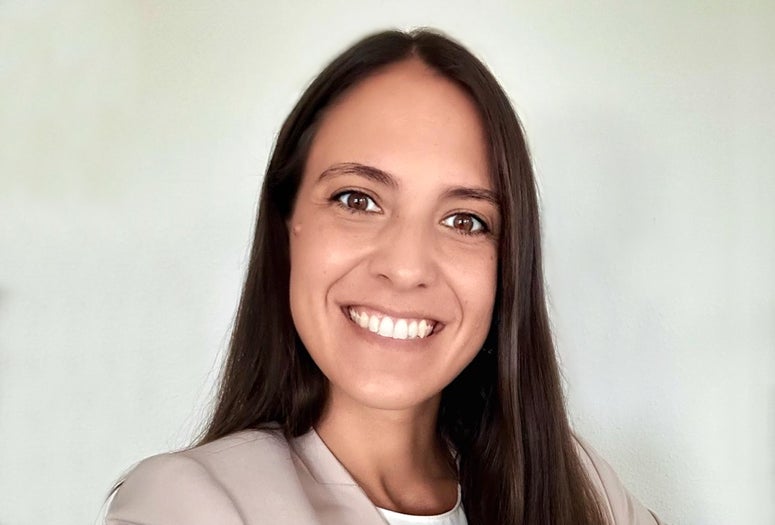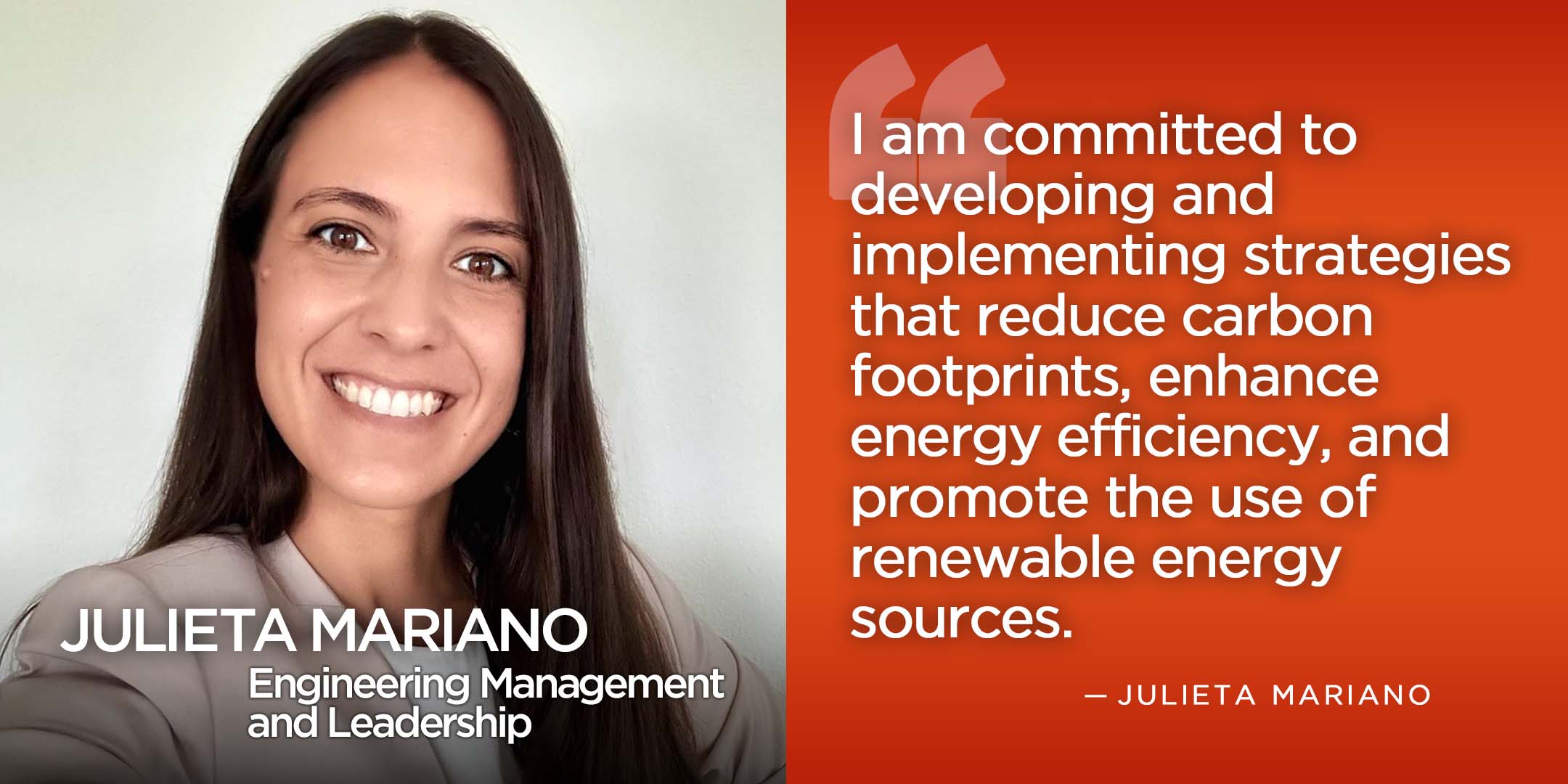-
Meet Julieta
-
Graduate program: Masters of Engineering Management and Leadership
Year in graduate school: Second
Expected graduation date and degree: December 2024, MS
Hometown: Cordoba, Argentina
Connect: Julieta on LinkedIn
-
What is the problem your project addresses?
-
My master's program includes a final Capstone Project course, which I will be taking next semester. I have not yet decided on a specific project, but I hope to work on one that allows me to combine all the new skills I have gained, such as coding in Python and applying economics to an energy-related field of study.
- Describe the professional skills and competencies you have developed through your program.
-
I have acquired tools and techniques to successfully execute and manage projects. I have learned how to code in Python and created my own Machine Learning model. I have gained technical knowledge in alternative energy sources such as geothermal, hydrogen, biofuels, wind, and solar, natural carbon sequestration, and CCS. Additionally, I have learned how to evaluate energy projects not only from a technical perspective but also in terms of economics. I have developed strong research skills in the energy market and a broad understanding of energy market dynamics, energy transition strategies, and carbon markets.
- Describe any key projects or practical experiences you have been involved in during your program.
-
As part of my CEVE 507 Energy and the Environment class, I participated in a group project addressing a real challenge from the industry. Specifically, we collaborated with Enbridge, an energy delivery company, on a proposal to reduce emissions in their natural gas midstream business. Our team proposed integrating a modular methane pyrolysis reactor into their compression facilities to produce turquoise hydrogen, which would be used as fuel for compressors. We assessed the technical feasibility of this approach, considering current startups offering modular solutions, and analyzed the economic and environmental impacts. This project was one of the highlights of my master’s program.
In addition, I am currently completing a summer internship at the Center for Energy Studies at the Baker Institute, where I am collaborating on a wide array of projects, ranging from alternative fuels such as SAF, clean ammonia, and e-fuels, to microplastics and LNG.
- What do you see as the most pressing sustainability challenge?
-
The most pressing sustainability challenge we face today, in my view, is transitioning from an industrial system heavily dependent on fossil fuels to a more sustainable model. While developing affordable, efficient, and large-scale sustainable technologies is crucial, the real challenge is integrating these new technologies into our existing infrastructure. This transition requires not just technological innovation but also consistent public policies to ensure ongoing efforts and benefits in cleaner energy.
Moreover, while the focus is often on reducing carbon emissions, true sustainability goes beyond that. It includes social, economic, and environmental factors. We need to address all these aspects together to achieve a genuinely sustainable future.
- How do you envision your professional career contributing to solving sustainability challenges?
-
My professional career is focused on tackling sustainability challenges, particularly in the energy sector. With a background in chemical engineering and extensive experience in the oil and gas industry, I am eager to apply the new skills I am acquiring in my master's program to pivot toward clean energy and sustainable solutions.
In my future roles, I aim to leverage this knowledge to help organizations transition to more sustainable energy sources and practices. Whether through consulting, project management, or research, I am committed to developing and implementing strategies that reduce carbon footprints, enhance energy efficiency, and promote the use of renewable energy sources. -
Is there any funding or support your advisor or you would like to acknowledge?
-
I have been awarded a Fulbright scholarship in association with IAPGH (for its Spanish name ‘Instituto Argentino de Petroleo y Gas - Houston’) to cover all my expenses during this master’s program. It is an honor to be a part of such an inspiring community.
- Is there anything else you would like to share about your experience or achievements in the program?
-
MEML is a new and unique program at Rice that prepares students for the adoption and leverage of Industry 4.0 in their respective fields. For me, this means focusing on energy. Key courses for my career development include Data Science, Project Management, Economics, and Engineering Leadership. I took an "Energy Transition" track with electives that expanded my understanding beyond the technical aspects of sustainable energy, giving me a broader perspective on energy market dynamics. This combination of courses equips me to leverage advanced technologies and address the pressing challenges in the energy industry.


